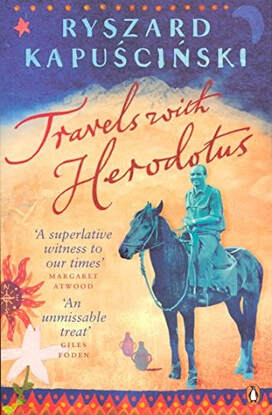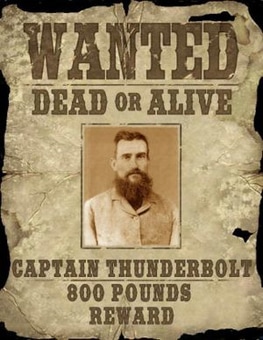Oral History and Donald McLaran's Family

Travels with Herodotus - a book by Ryzard Pakuscinski
There is a paragraph in this entertaining book which aptly describes the inherent problems of oral history:
So Herodotus wanders the world, meets people, listens to what they tell him. They speak of who they are, they recount their history. But how do they know who they are, and where they came from? Ah, they answer, they have it on the word of others - first and foremost, from their ancestors. It is they who transmitted their knowledge to this generation, just as this one is now transmitting it to others.
The knowledge takes the form of various tales. People sit around the fire and tell stories. Later, these will be called legends and myths, but in the instant when they are first being related and heard, the tellers and the listeners believe in them as the holiest of truths, absolute reality. They listen, the fire burns, someone adds more wood, the flames' renewed warmth quickens thought, awakens the imagination...
And so it seems to be with some of our McLaran Family oral history. Often there is a modicum of truth in the story, but the era, the characters involved, and the place may have been changed intentionally or by mistake.
There is a paragraph in this entertaining book which aptly describes the inherent problems of oral history:
So Herodotus wanders the world, meets people, listens to what they tell him. They speak of who they are, they recount their history. But how do they know who they are, and where they came from? Ah, they answer, they have it on the word of others - first and foremost, from their ancestors. It is they who transmitted their knowledge to this generation, just as this one is now transmitting it to others.
The knowledge takes the form of various tales. People sit around the fire and tell stories. Later, these will be called legends and myths, but in the instant when they are first being related and heard, the tellers and the listeners believe in them as the holiest of truths, absolute reality. They listen, the fire burns, someone adds more wood, the flames' renewed warmth quickens thought, awakens the imagination...
And so it seems to be with some of our McLaran Family oral history. Often there is a modicum of truth in the story, but the era, the characters involved, and the place may have been changed intentionally or by mistake.

Oral history Example #1
"I met Thunderbolt when he came to Dalby."
Malcolm Lewis McLaran (1886 - 1965) related tales of meeting Captain Thunderbolt in Dalby to his grandchildren. However, Captain Thunderbolt died in 1870, 16 years before Malcolm's birth. But, there is at least one account of Thunderbolt's 1864 Dalby visit:
4 Apr 1924 Dalby Herald
The new Plough Inn gained an imputation as the "toff" hotel of Daiby, its deep morticed stumps may still be seen, and one at least of its decorated fence posts, while at the path-side is the slab of stone that formed its entrance. Behind the Plough inn, in Bunya street, an opposition hostelry raised its head in the form of the "Red Lion." The whole of this corner, then known as the "Old Corner," passed subsequently into the hands of the R.C. Church, and was used for some years as the convent.
A story is told of Walker, the bushranger (known as Thunderbolt), appearing like an apparition at the door of the hall, which was in charge of Jim Milford, during the progress of a dance, and armed, cap-a-pie, Walker demanded to have the M.C. (Mr. Eastaughffe), sent out to him and ordered him to hand over bottles of brandy to the freebooter. If true, the story adds a tinge of romance to the Old Corner.
Comment
It appears that at some point the story of the famous bushranger has been transformed radically. A recent discovery revealed that Eastaughffe and Thunderbolt were old acquaintances. James Milford was Malcolm Lewis McLaran's uncle and obviously the incident occurred many years before Malcolm's father met his mother.
"I met Thunderbolt when he came to Dalby."
Malcolm Lewis McLaran (1886 - 1965) related tales of meeting Captain Thunderbolt in Dalby to his grandchildren. However, Captain Thunderbolt died in 1870, 16 years before Malcolm's birth. But, there is at least one account of Thunderbolt's 1864 Dalby visit:
4 Apr 1924 Dalby Herald
The new Plough Inn gained an imputation as the "toff" hotel of Daiby, its deep morticed stumps may still be seen, and one at least of its decorated fence posts, while at the path-side is the slab of stone that formed its entrance. Behind the Plough inn, in Bunya street, an opposition hostelry raised its head in the form of the "Red Lion." The whole of this corner, then known as the "Old Corner," passed subsequently into the hands of the R.C. Church, and was used for some years as the convent.
A story is told of Walker, the bushranger (known as Thunderbolt), appearing like an apparition at the door of the hall, which was in charge of Jim Milford, during the progress of a dance, and armed, cap-a-pie, Walker demanded to have the M.C. (Mr. Eastaughffe), sent out to him and ordered him to hand over bottles of brandy to the freebooter. If true, the story adds a tinge of romance to the Old Corner.
Comment
It appears that at some point the story of the famous bushranger has been transformed radically. A recent discovery revealed that Eastaughffe and Thunderbolt were old acquaintances. James Milford was Malcolm Lewis McLaran's uncle and obviously the incident occurred many years before Malcolm's father met his mother.
Oral history Example #2
"Donald McLaran married twice. He had two children by his first wife."
This oral history was recorded in In Search of Dad's Country by Dale Lehner in 2004.
There is no Queensland or New South Wales record of:
Comment
However, Donald's sister Catherine married twice and she had two children by her first marriage.
"Donald McLaran married twice. He had two children by his first wife."
This oral history was recorded in In Search of Dad's Country by Dale Lehner in 2004.
There is no Queensland or New South Wales record of:
- Donald McLaran marrying prior to 1879
- births or deaths of children fathered by Donald McLaran with a mother other than Clara Eversden.
Comment
However, Donald's sister Catherine married twice and she had two children by her first marriage.
Oral history Example #3
"Donald McLaran worked as a miner in North Queensland."
This oral history was also recorded by Dale Lehner.
In the court case McLaran Vs Wuth, Donald McLaran stated he was absent from Dalby for two years between 1864 and 1866. If Donald did try his luck at mining 1864 - 66, it may have been in the Clermont gold rush. (The Gympie goldfields were discovered in 1867 and the Charters Towers field in 1877.)
From the frequency Donald is mentioned in the Dalby Herald after 1866, it appears unlikely he was absent from Dalby for any extended period of time thereafter or participated in the Charters Towers gold rush.
Comment
Donald was skilled in well construction and there may be some truth in this oral history. Donald's sister, Margaret McLaren, died on a property near the Clermont goldfield in 1874.
Newspapers make mention of miners around Charters Towers named "McLaren" in the latter years of the 19th century, but none of these gentlemen was our Donald McLaran from Dalby.
It is possible (but as yet there is no proof) that Donald McLaran travelled north - perhaps joining with his brother Duncan on the way - to the Clermont gold rush. So oral history in this instance may well be correct, even if the details have been lost over the years.
"Donald McLaran worked as a miner in North Queensland."
This oral history was also recorded by Dale Lehner.
In the court case McLaran Vs Wuth, Donald McLaran stated he was absent from Dalby for two years between 1864 and 1866. If Donald did try his luck at mining 1864 - 66, it may have been in the Clermont gold rush. (The Gympie goldfields were discovered in 1867 and the Charters Towers field in 1877.)
From the frequency Donald is mentioned in the Dalby Herald after 1866, it appears unlikely he was absent from Dalby for any extended period of time thereafter or participated in the Charters Towers gold rush.
Comment
Donald was skilled in well construction and there may be some truth in this oral history. Donald's sister, Margaret McLaren, died on a property near the Clermont goldfield in 1874.
Newspapers make mention of miners around Charters Towers named "McLaren" in the latter years of the 19th century, but none of these gentlemen was our Donald McLaran from Dalby.
It is possible (but as yet there is no proof) that Donald McLaran travelled north - perhaps joining with his brother Duncan on the way - to the Clermont gold rush. So oral history in this instance may well be correct, even if the details have been lost over the years.
Oral history Example #4
"Donald McLaran spelt his surname ending in "an" to avoid confusion at the post office with his brother Duncan McLaren."
This oral history relates that Donald and Duncan used different surname spellings to avoid Post Office confusion as they shared the same Christian name initial.
Comment
This may very well be the truth, or it may be a long-standing joke by Donald himself to hide an error of spelling or transcription. Evidence of this spelling divergence may be found in 1857 when Donald and Duncan both purchased Dalby building allotments. Perhaps the purchases initiated or reinforced the different surname spellings.
"Donald McLaran spelt his surname ending in "an" to avoid confusion at the post office with his brother Duncan McLaren."
This oral history relates that Donald and Duncan used different surname spellings to avoid Post Office confusion as they shared the same Christian name initial.
Comment
This may very well be the truth, or it may be a long-standing joke by Donald himself to hide an error of spelling or transcription. Evidence of this spelling divergence may be found in 1857 when Donald and Duncan both purchased Dalby building allotments. Perhaps the purchases initiated or reinforced the different surname spellings.